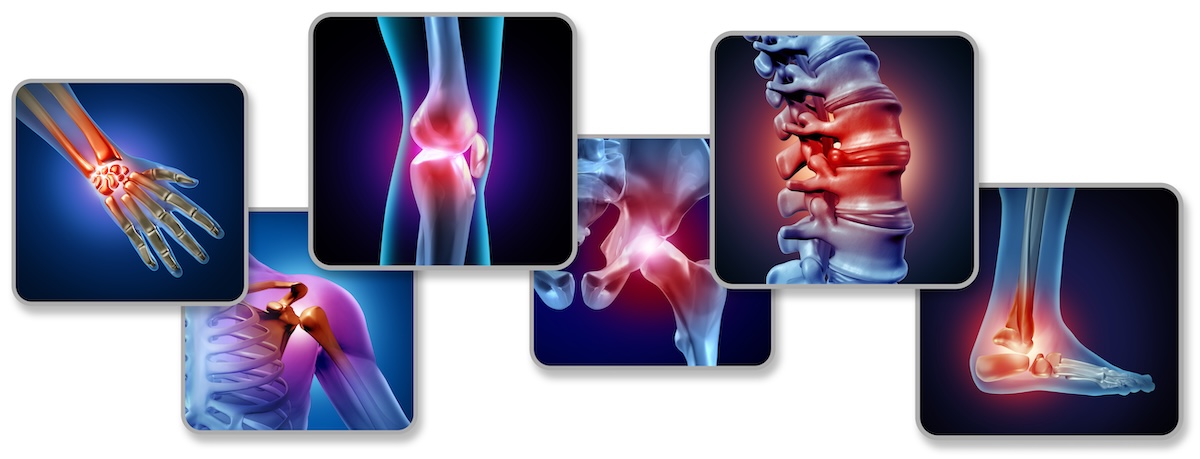Latest in Lifestyle Redesign®
November 2023
LR IRL — Lifestyle Redesign in Real Life
Taking a mulligan with an OT for a caddie

When Greg met his occupational therapist, Tracy Jalaba, OTD, OTR/L, he was “convinced he was not the type of person that would be able to get more than 5-6 hours of sleep due to having too much energy”. Greg was a golfer who had been diagnosed with sleep disorder and obesity when he decided to “take a mulligan” (a “do-over” or second attempt) on managing his health. He was referred to the USC Occupational Therapy Faculty Practice (OTFP) Lifestyle Redesign sleep disorder program; though, sleep was not the only goal area Greg felt he could use support with. He and Tracy collaboratively set goals related to sleep, eating routines, physical activity, and self-regulation/stress management — a true comprehensive approach to addressing Greg’s lifestyle needs.
With regard to sleep, the duo worked at implementing winddown and time management strategies to support Greg in gradually establishing an earlier bedtime. To help better manage alerting/anxious thoughts that would arise when trying to fall asleep, Tracy introduced Greg to a variety of cognitive strategies and relaxation techniques to help with his self-regulation/stress management, which he would practice as a part of his new nighttime routine. Collectively, these efforts resulted in a major breakthrough! At first, Greg felt he had too much energy at night and could not get more than 5-6 hours of sleep; however, once he began implementing strategies learned in OT, he was able to get to bed early enough to consistently get 7 hours of sleep by the end of his 9 sessions.
Alongside his sleep-related goals, Greg also worked at improving his physical health. Tracy provided Greg with education on the impact of different types of food and approaches to eating on satiety, energy, and weight management. Together, they created a system for Greg to increase his awareness of his eating habits and hold himself accountable to the changes he wanted to make. Greg maintained a weekly food journal and collaborated with Tracy to identify strategies for managing temptations to eat less-healthy foods while at work. These efforts, in addition to incorporating more strength training into Greg’s routine (in addition to golf), gave Greg the boost he needed to feel confident in his ability to continue making progress, even after his time with Tracy came to an end.
Greg shared the following positive lifestyle changes he made while attending OT: “weight loss from 275 lbs to 260 lbs, eating healthier, sleeping better, and overall mental health is stronger.” He walked away from his time in OT, “feeling better about my weight which has increased my energy and mental well-being.”
When asked about his partnership with Tracy, Greg shared, “It is great to have an occupational therapist such as Tracy, who is a good listener and helped me to learn and set realistic goals.”
Tracy shared highlights about working with Greg: “Watching Greg’s transformation from someone who saw himself as a person who had these long-standing health concerns and who wouldn’t be likely to change, into someone who was very excited about the progress he made, both in sleep and in weight management. He also really seemed to get the OT process and talked about how helpful it was to have someone that understood how all the different pieces of his health fit together, rather than just having expertise in one specific area.”
Greg added, “If you want to make changes and incremental steps to attain goals that will help you with your physical and mental health, the OT and Lifestyle Redesign can help you because I was able to have a number of successes. My therapist, Tracy, was patient and was a key ingredient and coach to my success.”
Research Spotlight
Lifestyle Redesign intervention improves health and quality of life of people living with fibromyalgia

Fibromyalgia, a chronic condition causing widespread pain, fatigue, cognitive issues, and sleep disturbances, affects 1.3-8% of people worldwide. Pharmacological treatments for fibromyalgia have limitations and potential risks, and biopsychosocial interventions that focus on symptom management are often recommended. A 10-week Lifestyle Redesign group intervention for fibromyalgia was established at the USC Faculty Practice in 2015, and a clinical outcome study led by Lindsey Shomer and Shawn Roll investigated its impact on pain interference, pain self-efficacy, depressive symptoms, and the overall impact of fibromyalgia on quality of life. Among 21 individuals who completed the program, 17 (81%) had clinically meaningful improvement in at least one outcome. Overall, clinically and statistically significant improvements were noted in pain self-efficacy, depressive symptoms, and fibromyalgia impact, but not pain interference. In describing the impact of the intervention, Dr. Shomer stated, “The group allowed individuals to connect with others living with fibromyalgia as part of the Lifestyle Redesign intervention. While the OT provided training and education on a variety of lifestyle management topics, group members offered support and recommendations based on their lived experience. The group intervention approach offered unique social benefits compared to one-on-one care.” Lifestyle Redesign may be a viable treatment option for individuals with fibromyalgia; further research is needed to more clearly establish its effectiveness as an alternative or complementary treatment alongside other pharmacological or behavioral treatment approaches. Read more about the study here ⟩.
New occupational therapy assessment promotes well-being of children with T1D and their caregivers

Type 1 diabetes (T1D) is a prevalent childhood chronic condition, affecting over 244,000 youth in the U.S. T1D occurs when the body fails to produce insulin, causing a range of symptoms that can adversely impact function and participation. Caring for a child with T1D involves numerous and unrelenting daily tasks that are often stressful and burdensome, which has downstream effects on both child and caregiver well-being. To address this issue, a family-centered assessment to evaluate health management routines was needed. A research team led by Vanessa Jewell, PhD, OTR/L at the UNC School of Medicine Diabetes Research and Wellness Lab developed the “Diabetes Health Management and Distress Scale: Parents of Children” (DHMDS-PC), to assess caregivers’ competence, satisfaction, and distress related to diabetes management tasks. Grounded in Lifestyle Redesign, the ADA Standards of Care, and the OT Practice Framework, the assessment was found to have excellent validity and reliability, and is appropriate for caregivers of children age 2-12 with T1D. In discussing her work on this assessment, Dr. Jewell shared, “The most meaningful part of this project was working with those who either live with T1D or provide care to a child with T1D. It was critical to capture those meaningful, everyday occupations that are affected by caring for a child with a chronic condition.” The DHMDS-PC is an excellent resource to guide occupational therapy interventions to promote health and wellbeing among caregivers and children with T1D. Read more about the assessment here ⟩.
Upcoming Opportunities
Stay Tuned: Lifestyle Redesign Webinar Series, launching soon

Starting in Spring 2024, the Lifestyle Redesign Knowledge Mobilization Initiative (LR-KMI) team will be hosting webinars every other month, showcasing how clinicians, researchers, and educators are using Lifestyle Redesign in their respective areas of expertise. More information to come in the January 2024 newsletter!
OTFP Fellowship — New Opportunity Starting Summer 2024!

The USC Occupational Therapy Faculty Practice (OTFP) is excited to announce the launch of its Occupational Therapy Fellowship! For the first time, the OT Faculty Practice will be opening its Lifestyle Redesign training opportunities to licensed occupational therapy practitioners from around the globe.
The purpose of the USC OTFP Fellowship program is to foster the development of expertise in administering the Lifestyle Redesign intervention to individuals living with chronic physical and mental health conditions. The fellowship curriculum will include more than 1,400 hours of didactic and clinical education, mentored service delivery and non-mentored service delivery and will cover topics including pathophysiology of chronic conditions, occupation-based and evidence-based practice guidelines, safety regulation and ethical practice guidelines, interpersonal skills, and professional engagement. Fellows will be paired with a faculty clinician and will engage in training, structured mentoring sessions and scholarly activities to foster the development of expertise in Lifestyle Redesign. Throughout the experience, fellows will gain expertise in service delivery, participation on interprofessional teams, public speaking, and community engagement.
The fellowship will expedite the process for receiving certification in Lifestyle Redesign as fellows will complete the didactic content and clinical hour requirements needed to apply for Lifestyle Redesign certification. The fellowship program is currently in the application phase and is under review, with an anticipated start date of Summer 2024.
For additional information about the OT Faculty Practice, please visit our website ⟩.







